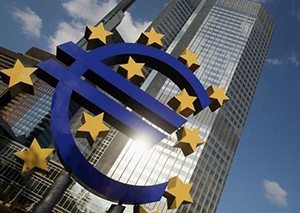After years stuck in the doldrums, the Eurozone economy is finally showing signs of recovery, according to financial analysts.
The decisive move was the European Central Bank acting to free up the economy with quantitative easing – helped along by plunging oil prices.
The sizing up of progress in the single currency area was made by economists and analysts and investment house Schroders.
Although the road may be bumpy for the Eurozone, including leaders having to make some difficult decisions about whether to kick Greece out of the single currency club.
Azad Zangana, the firm’s senior European economist, explained economic data coming out of the Eurozone was now consistently encouraging for investors.
Weakening euro boost
“Last year was the complete opposite to this,” he said. “One of the key factors has been a change in banking. Banks are no longer concentrating on building their capital reserves and are returning to something like normal lending.
“Lower oil prices have given consumers extra money to spend that is also boosting the economy.”
Zangana explained his optimism for the Eurozone economy.
“The weakening euro should see the cost of exports to the UK and USA falling, creating more demand and cutting the need for imports, as they become more expensive compared with local goods,” he said.
“The growth in net trade will balance out at first, but the balance will then start to tilt and translate into increasing GDP over the next few years.”
Problems over Greece
The firm has calculated that the drop in oil prices has given each Eurozone household an extra 1,000 euros to spend during the past 12 months.
He also considers Greece is still a problem without a clear resolution.
“Within Greece, the economy is at sixes and sevens,” he said. “Revenue from tax has fallen away and savings accounts are being stripped out, while no bailout agreement has been reached.
“I think Greece will stay in the Eurozone, but whether the country stays or goes won’t hit markets too much as investors and banks have had plenty of time to ready for the situation.
“The scenario will just play out and come to an eventual conclusion.”
These factors will help bolster the earnings of Eurozone corporates, which have seen their revenues flag over recent years, says the firm.
